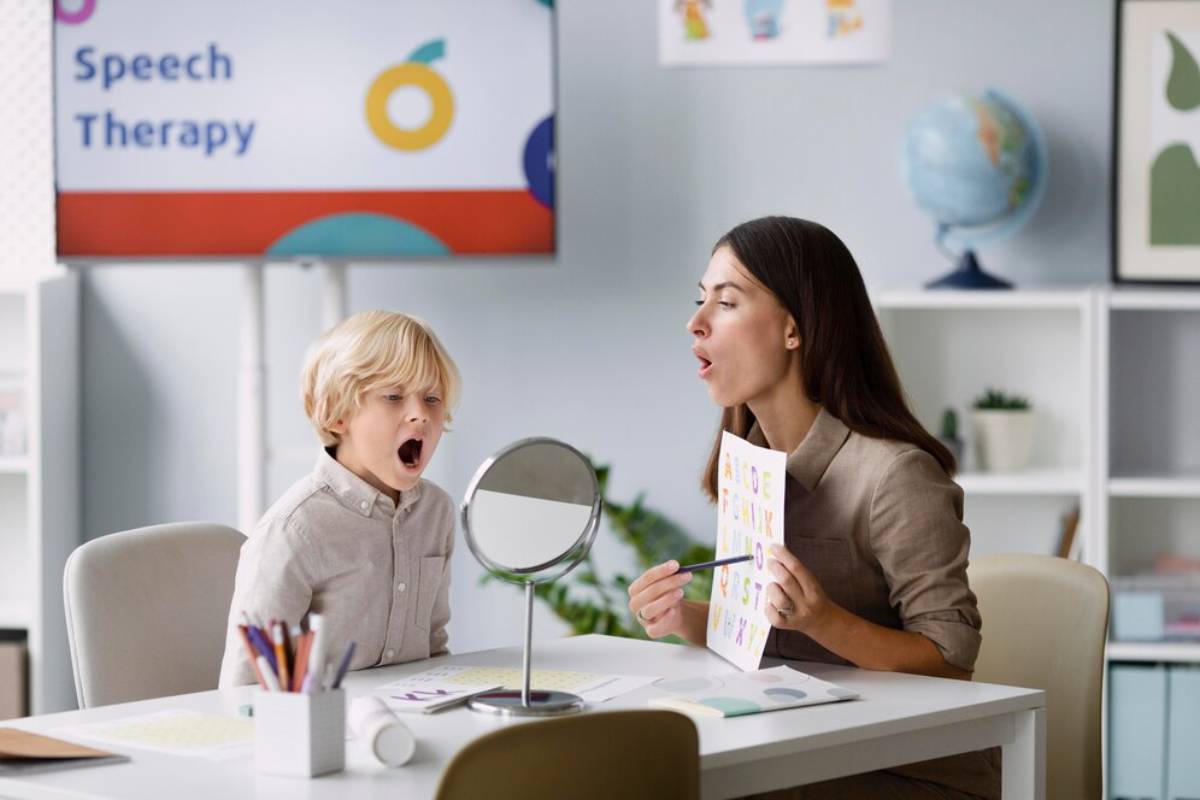
Encouraging Language Development in Toddlers
The rewarding aspect of early parenting is supporting your toddler’s speech and language development. Toddlers are discovering how to express themselves at an impressive rate, and if they have help from you, they can have strong early communication skills. This blog provides practical toddler speech tips, fun and motivating language growth activities, and expert insights to support early communication skills. Whether your toddler starts speaking their first words or building simple sentences, these strategies will help you encourage confident, clear, and joyful communication at every step.
Why Language Development Matters?
Language development is not just about talking; it includes listening and understanding. A child’s brain is highly receptive to new skills during toddler years, making it an excellent time to promote language growth. By encouraging this, you help toddlers build a strong vocabulary, express emotions, and improve social skills.
The Critical Role of Early Communication Skills
Good early communication skills set the stage for future learning. Toddlers with strong language skills manage tasks better, such as problem-solving. Language skills also connect closely to literacy, which is crucial for school success. Emphasising language activities can guide your child toward lifelong learning.
Key Benefits of Encouraging Language Development
Enhancing Cognitive Abilities
Learning language engages many parts of a toddler’s brain, boosting cognitive growth. Activities like reading and storytelling ignite imagination and improve information processing. As toddlers learn new words, their memory and focus improve, which is essential for school success.
Fostering Emotional Intelligence
Language helps toddlers express feelings and understand others. Supporting language development allows them to share emotions, improving emotional control and social interactions. Those who can communicate their needs experience less frustration and build positive relationships.
Building Social Skills
Effective communication is central to social interactions. Toddlers with strong language skills engage better in conversations and easily make friends. Language activities like group play and interactive games let toddlers practice social skills in a friendly way.
Language Growth Activities for Toddlers
Reading Aloud

Reading aloud is one of the best ways to encourage language growth. Pick age-appropriate books with colourful pictures and engaging stories. As you read, point to images, ask questions, and let your toddler participate. This approach boosts vocabulary and fosters a love for reading.
Singing and Rhyming
Music and rhymes are effective for language development. Singing songs and reciting nursery rhymes help toddlers grasp the rhythm and flow of language. Encourage your child to clap, repeat phrases, and make their rhymes. These fun activities enhance vocabulary and phonetic skills.
Engaging in Conversations
Talk with your toddler throughout the day. Discuss the weather, describe a favourite toy, or explain your actions. This exposes them to new words and sentence structures. Encourage your toddler to share thoughts, listen actively, and build on their ideas.

Interactive Play
Interactive play, like role-playing and pretend games, offers rich chances for language development. Allow your toddler to take on different roles, use props, and create stories. This play boosts creativity, vocabulary, and narrative skills. Playing with peers also enhances social interactions.
Exploring the Outdoors
Outdoor activities create many opportunities for language learning. Take your toddler on nature walks to the zoo or a local park. As you explore sights and sounds, talk about what you see and hear. Encourage your toddler to ask questions and describe their surroundings to expand their vocabulary.
Common Mistakes to Avoid
Overloading with Information
It is important to introduce new words in this way, but toddlers may be overwhelmed by too much information at once. Quality, not quantity — introduce new vocabulary in small chunks and practise through fun activities. Make sure language enrichment activities are fun and not overwhelming.
Ignoring Non-verbal Communication
Language development is not just learning to speak. Body languages, gestures and expressions are also key to win communications. Help your toddler identify and use these cues to refine communication skills.
Compared to Other Children
Children develop in an individual way, with a broad range of language ability. But don’t judge your child’s progress based on how others do; that can create pressure and anxiety. Learn to shine light on your child’s accomplishments, no matter how small or uniquely they reached their goals.
Tips for Encouraging Language Development
Create a Language-rich Environment
Expose your toddler to as much language as you can by providing books, music and educational toys. Similarly, you can label objects around the house and ask your child to identify and describe them. This language-rich environment creates endless opportunities to hear, learn, and use new vocabulary.
Be Patient and Supportive
Language development takes time. Toddlers may experience rapid progress followed by slower periods. Be patient, offering encouragement and praise for their efforts. Celebrate small victories and provide gentle guidance to create a positive learning environment.
Encourage Curiosity and Exploration
Curiosity drives learning. Encourage your toddler to ask questions and explore their surroundings. By fostering curiosity, you inspire them to engage with the world, promoting language development through discovery.
Nurturing a Lifelong Love for Language
Supporting your child in building solid foundational early communication skills is a process of tiny steps and giant leaps. If you’ve enjoyed this guide’s toddler speech tips and language growth activities, you’re laying the groundwork for confident self-expression and lifelong learning. Every word, gesture and sound your toddler makes is a victory, and your support is a massive part of that Watch your baby’s first communication Continue interacting with them through play, conversation and storytelling. Want more tips and ideas? Subscribe to our newsletter or explore our blog for expert guidance and fun ways to support your child’s speech development daily.